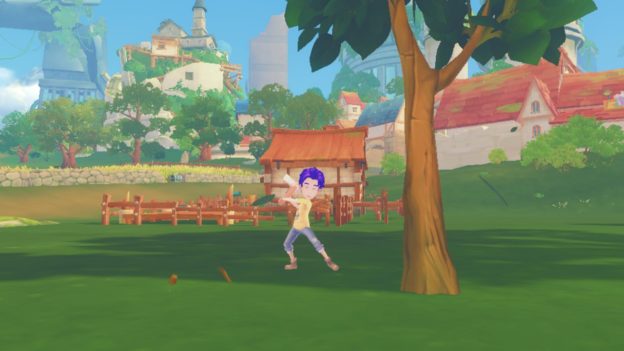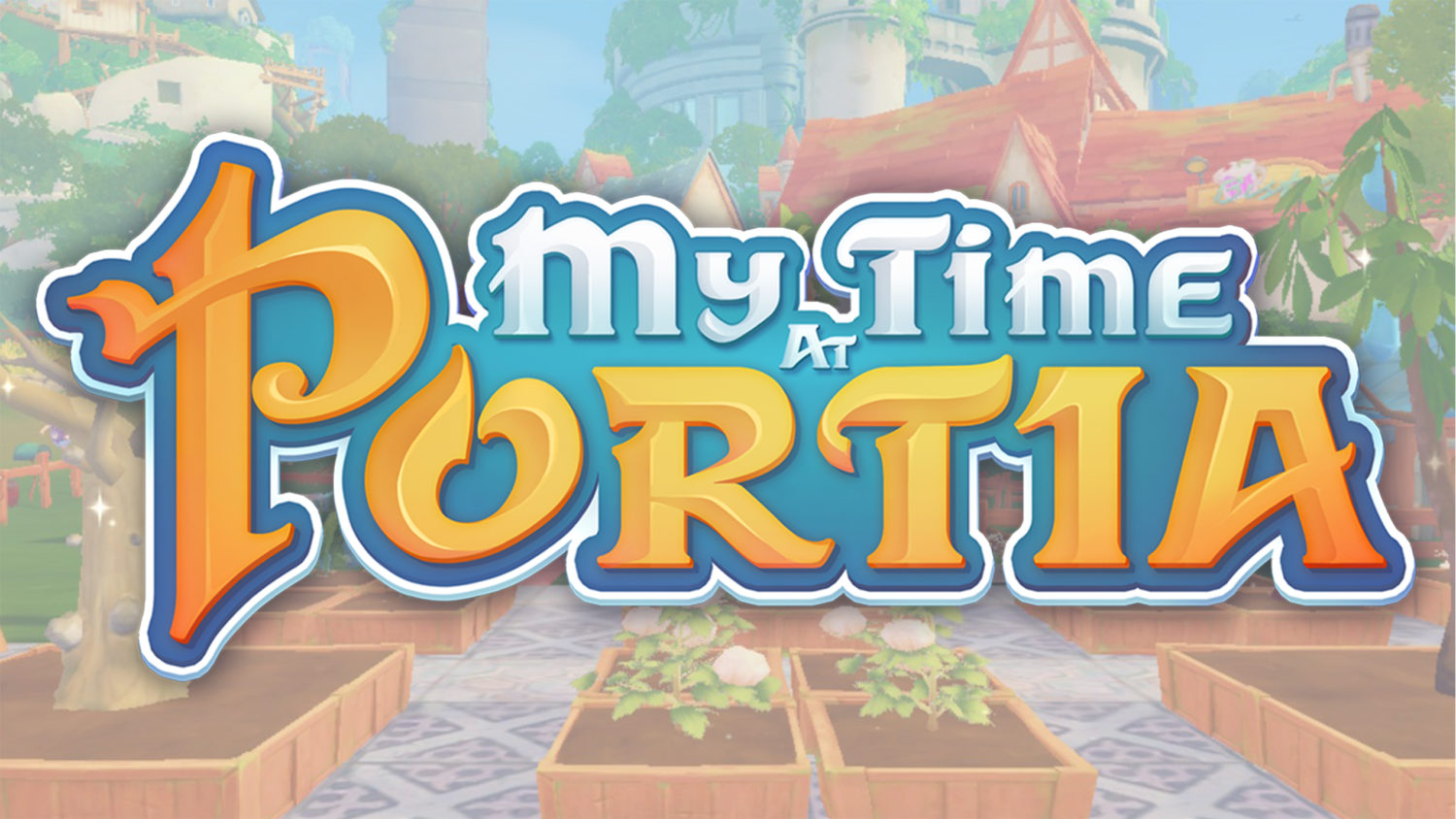Gaming, like any art form, means different things to different people. Some play to escape, others to push their limits. Yet there’s a growing contingency who play to relax.

Yes, even the most hardcore among us eventually tires of saving kingdoms, warping through pipes, and fighting Ridley on some space station…again. It may explain the proliferation of calm and cozy life sims like Minecraft, Story of Seasons, and Stardew Valley. Which is where My Time at Portia comes in.
Despite the bright and beautiful Pixar-esque graphics in My Time at Portia, the game is actually set in a post-apocalyptic time in an agrarian society slowly but surely climbing back from the brink. You’ve inherited your pa’s workshop, which has honestly seen better days. Your mission, if you choose to accept it, is to bring the dilapidated homestead back to working order, grow crops, raise animals, and build a self-sustaining workshop that cranks out consumer goods. Then you can start solving the town of Portia’s seemingly endless requests.
If you’ve ever cracked open a Harvest Moon, this rigamarole will be at least somewhat familiar. A little. Kind of. The great thing about the game’s mechanics is that they are, at the very least, a surprise. Unlike other life sims that revolve around farming, Portia truly puts crafting at the forefront.
Not only do you craft items, but you also craft large tools such as skivers, furnaces, forges, and even a blender that resembles a fancy Kitchenaid. It’s as involved as any crafting mechanic has ever been, making building tools and items in Minecraft or The Legend of Zelda: Breath of the Wild seem simple by comparison. As involved as it is, it’s incredibly satisfying, and offers quite a challenge as far as timing is concerned. Smelting ores into bricks or wood into planks takes hours, so you have to work this downtime into your daily tasks.
Before you craft, you need to gather supplies. This can be done many ways. You can explore the land and scavenge strange plants and minerals. You can use a little elbow grease to mine ores or chop trees into wood. And because the wild is filled with all manner of dangerous fauna, you can straight up murder for it.
Combat seems like an afterthought, especially for a game where most everything feels natural. Slaying monsters isn’t exactly satisfying, and dying takes you back to your last save, which is typically the start of the day. If you decided to do a slew of chores before going hunting and then get your ass handed to you, all of your daily drudgery will have been for naught.

However, I can happily report every other aspect of the game is totally intuitive. Exploring the land is always satisfying, especially when you stumble upon hidden treasure. A big part of the game involves mining (I wonder where they got that idea…) for lost old-world items and rare ores that will help upgrade your homestead. Familiar as this mechanic may be, Portia gets it right if only because of the beautiful world it occupies.
The look and feel of My Time at Portia is easily its biggest selling point. Landscapes are picturesque, characters are charming, and even the nastiest of enemies is oftentimes just plain cute.
Review: My Time at Portia (Nintendo Switch)
Great
If you’re looking for a title that relieves tension instead of building it, My Time at Portia is as soothing as gaming gets. The craft-heavy life sim offers new spins on mainstays like farming, mining, and even fishing. It’s the closest gaming equivalent to a warm cup of cocoa: soothing and satisfying. If Harvest Moon and Breath of the Wild had a baby, I’m positive their beautiful brood would feel like My Time at Portia.


